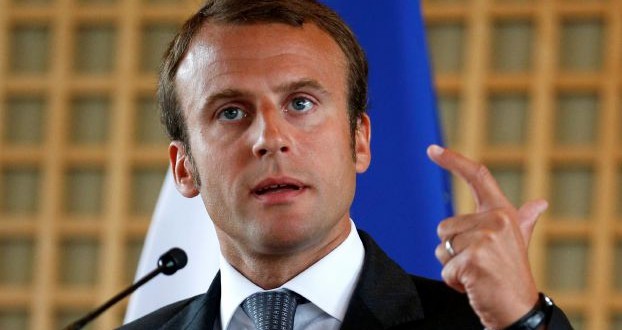French presidential elections has brought Emmanuel Macron to the Elisee. The youngest president in France history has been able to defeat veteran candidates and parties that dominated the French scene for decades, namely, the republicans and the socialists. Occupying the first position in the French Republic however, does not entitle the new president for a full authority, but for a very short period of time, barely a month, as the parliamentary elections next June will produce new strong partners. The majority winning party, will bring the prime minister who will share him his authorities. A coexistence policy between the president and the premier are most likely to prevail, and this will curtail many prerogatives of the president. The situation is not new to French politics; Francois Mitterrand and Jacques Chirac, both had to drink the same bitter glass during their terms. Such a situation will tie the presidents’ hands and put him under the mercy of the coalitions he makes. As such, it is better if Macron learns the art of concessions early enough to be able to cope with the expected results of the elections.
But still, the question to be raised is: How was it possible for Macron to win the elections, though he does not belong to a major party, and has not been so well known in the French politics?
Many factors overlapped to serve Macron’s election, and those could be summed up as follows:
1- The disappointment of the public from both major parties: the republicans and the socialists.
2- The support of the proponents of both parties to Macron upon the request of their leaders, not because they like his ideas, but because they desperately want to prevent the extreme right represented by Marine le pen from reaching to top power.
3- The voting of Muslims and foreign immigrants to Macron because of the fears about their future had the extreme right won the elections.
4- The tremendous support he received from the financial institutions and the banking system not only in France, but across Europe because he was European oriented and not separatist as is the case with the extreme right party. The latter sought to exit from the European Union.
5- The well organized propaganda and huge media support and well coordinated campaigns that supported his elections.
Nonetheless, all of the above does not guarantee Macron a smooth running of his governance machine. The political Matrix in France is so complicated to be reduced to those factors.
The socialists and the republicans are preparing to take revenge and retain their power in the coming parliamentary elections. The French voted in millions
To the extreme right which is very alarming. The political and social stratification has deepened in France.
Macron has to handle a host of problems:
1- The combating of terrorism.
2- The wide wedge between the poor and the rich.
3- The chronic problem of unemployment.
4- The growing tendency of partition and seceding from Europe.
Such problems are not only difficult ones, but also crucial to France future and the future of Europe. The situation now is a “wait and see” situation. The vagueness and obscurity of the political scene is yet to be clear after the coming parliamentary elections.
Source: Al-Manar Website




